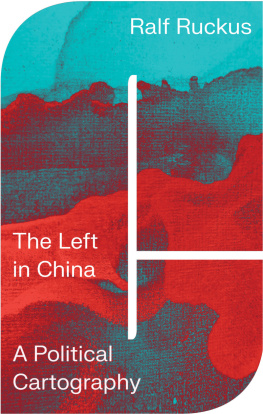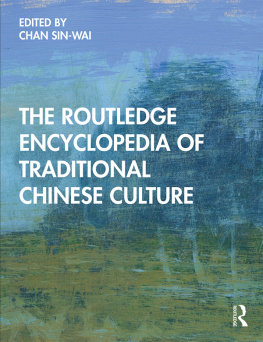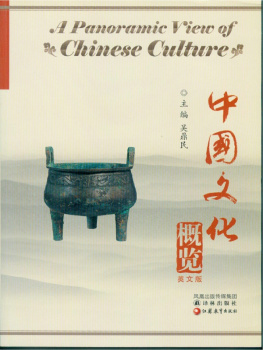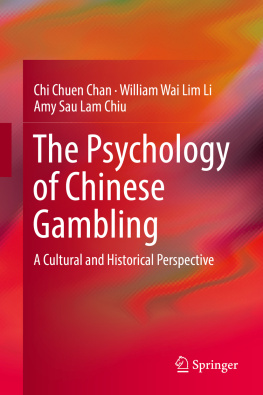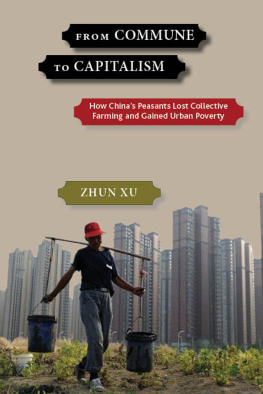Cultural Expression and Subjectivity of Chinese Peasants
As the famous sociologist Fei Xiaotong argued, the real life of most Chinese can only be seen in the villages. Peasants not only comprise a significant part of the Chinese population but represent a distinctive culture and one that is expressed in its own particular way. This makes for an important area of study for scholars in communication studies.
This volume investigates how Chinese peasants express their culture and adapt to social change. The authors research consists of participant observation and interviews with shadow puppetry artists in Guanzhong, China, illustrating how peasant artists have adapted to the historical and social changes since the founding of the Peoples Republic of China. He discovers that Chinese peasants integrate urban popular culture with their own aesthetic criteria, even if the mainstream discourse of the Chinese community overlooks the subjectivity of peasants. He goes on to put forwards a creative analytical framework for the studies of the dynamics of subject-time-space.
Scholars and students of anthropology, sociology, and communication studies, especially rural communication studies, will find this an ideal case study.
Sha Yao is an associate professor at the School of Journalism and Communication, University of Chinese Academy of Social Sciences, and an associate research fellow at the Institute of Journalism and Communication, Chinese Academy of Social Sciences, China. He focuses his research on rural communication, communication ethnography, the political economy of communication, and so on.
Li Guicang is a professor of English and the Director of the Research Institute for Foreign Languages and Culture at Zhejiang Yuexiu University of Foreign Languages, China. His research focuses on Chinese North American literature, comparative literature, literary theory, and ecological criticism.
China Perspectives
The China Perspectives series focuses on translating and publishing works by leading Chinese scholars, writing about both global topics and China-related themes. It covers Humanities & Social Sciences, Education, Media and Psychology, as well as many interdisciplinary themes.
This is the first time any of these books have been published in English for international readers. The series aims to put forward a Chinese perspective, give insights into cutting-edge academic thinking in China, and inspire researchers globally.
To submit proposals, please contact the Taylor & Francis Publisher for China Publishing Programme, Lian Sun (Lian.Sun@informa.com)
Titles in media communication currently include:
Media Effects and Social Change
Ran Wei, Shuhua Zhou, Wenhui Luo
Epistemology of News Frame
Wei Xiao
Immersive Communication
The Communication Paradigm of the Third Media Age
Li Qin
Communicative Cities and Urban Space
Scott McQuire, Sun Wei
Communication and Community in the New Media Age
Wang Bin
Cultural Expression and Subjectivity of Chinese Peasants
Sha Yao
The Nanjing Massacre and the Making of Mediated Trauma
Hongtao LI, Shunming HUANG
For more information, please visit https://www.routledge.com/China-Perspectives/book-series/CPH
Cultural Expression and Subjectivity of Chinese Peasants
Sha Yao
Translated by Li Guicang
This book is published with financial support from the Chinese Fund for the Humanities and Social Sciences.
First published in English 2022
by Routledge
2 Park Square, Milton Park, Abingdon, Oxon, OX14 4RN
and by Routledge
605 Third Avenue, New York, NY 10158
Routledge is an imprint of the Taylor & Francis Group, an informa business
2022 Sha Yao
Translated by Li Guicang
Proofread by Patrick D. Murphy
The right of Sha Yao to be identified as author of this work has been asserted by him in accordance with sections 77 and 78 of the Copyright, Designs and Patents Act 1988.
All rights reserved. No part of this book may be reprinted or reproduced or utilised in any form or by any electronic, mechanical, or other means, now known or hereafter invented, including photocopying and recording, or in any information storage or retrieval system, without permission in writing from the publishers.
Trademark notice : Product or corporate names may be trademarks or registered trademarks, and are used only for identification and explanation without intent to infringe
English Version by permission of China Social Sciences Press.
British Library Cataloguing-in-Publication Data
A catalogue record for this book is available from the British Library
Library of Congress Cataloging-in-Publication Data
A catalog record for this title has been requested
ISBN: 978-1-032-03893-3 (hbk)
ISBN: 978-1-032-03931-2 (pbk)
ISBN: 978-1-003-18980-0 (ebk)
Typeset in Times New Roman
by Deanta Global Publishing Services, Chennai, India
Contents
The deepening of the crisis of modernity in the twenty-first century, as hinted at by the title of Amy Chuas book World on Fire , has brought about a change in the field of communication studies: the mainstream research paradigms based on a Cold War mentality and neo-liberalism are declining, whereas the critical research paradigms have become trendy. Based on authentic Marxism and the intellectual movements that aim for freedom and the complete liberation of humanity, and that aim for transcending intellectual thought that alienates itself from reality, the critical paradigms shoot up again like grass fanned by the spring breeze after a prairie fire. The new paradigms attract a number of young academics who are engaged in not only explaining but also changing the world. The author of The Cultural Expression and Subjectivity of Chinese Peasants is by all means one of these young scholars.
The current book about culture and communication by Sha Yao is a revision of his doctoral dissertation, on which he spent a tremendous amount of time and effort. As supervisor of his dissertation, let me quote here from my critical evaluation of his dissertation:
This dissertation is a solid research on how to enhance the cultural awareness and cultural subjectivity of Chinese peasants in the context of rural culture, especially in the context of constructing a new culture after the founding of the Peoples Republic of China (PRC). With rich fieldwork data and first-hand material, the author thoroughly explores and theorises shadow puppetry in the Guanzhong area, and its channels of communication. His conclusions are encouraging and enlightening. The topic he has researched is a hot one in communication studies and closely related to social reality. Be it fieldwork or data collecting, Sha is meticulous, detail-minded, and thorough; hence this work is rich in material and content, wide in perspective, realistic in presenting history, articulating issues based on facts, and most of all, always to the point. Appropriate in structure, clear in rationale, fluent in expression, and vivid in narration, this dissertation embodies a quality union of solid research and lively style, and demonstrates a serious scientific attitude.
My formulaic comment does no justice to his unyielding effort over the years. The following numbers might be indicative of his diligence: over 400 days of fieldwork, more than 3,000 pages of first-hand material, more than 500 interviews, and over 300 hours of recording.


